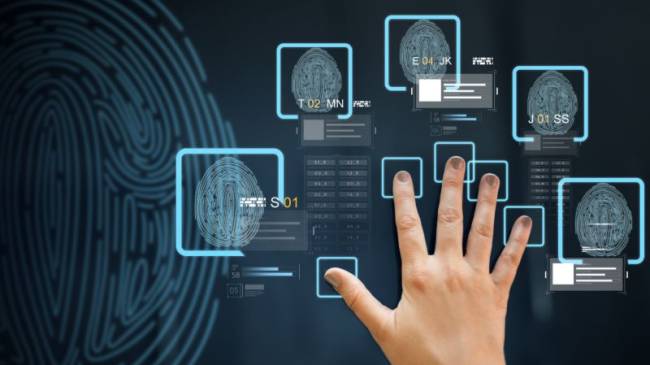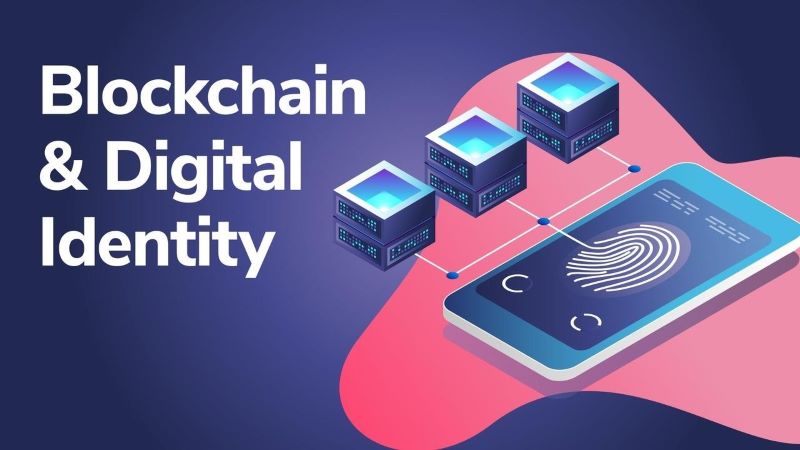Categories: Blockchain
Enhancing Privacy: The Promise of Blockchain in Digital Identity
Blockchain in digital identity provides a secure and decentralized method for managing personal information. This technology enhances privacy, reduces fraud, and offers individuals greater control over their data, revolutionizing how digital identities are verified
In an era where our digital footprint is expanding, the need for robust security measures has never been more crucial. Traditional identification systems, often centralized and vulnerable to breaches, have made individuals susceptible to data theft and misuse. But what if we could regain control over our digital identities? Enter blockchain technology, a decentralized and immutable ledger promising to revolutionize how we manage and safeguard personal information. This article delves into the transformative potential of blockchain in digital identity, exploring how it can empower individuals, enhance security, and reshape our online interactions.
Table of Contents
What is Blockchain in Digital Identity?
Blockchain ID (BID) is a term used to refer to the verification of digital identity using blockchain technology. With the use of encryption and decentralization, BID helps protect personal information and enhances security for users during online transactions.
Additionally, Blockchain ID has the potential to address issues related to privacy rights and identity management in the digital age. By leveraging blockchain, users can freely manage and control their personal information, thereby reducing risks related to security breaches and enhancing transparency.

Blockchain in Digital Identity
Blockchain can be regarded as a foundational platform for digital identity. With its decentralized nature and high security features, it supports the development of reliable and secure digital identity systems. Currently, many companies and organizations are integrating blockchain into the management of users' digital identities.
Blockchain Digital Identity Companies
Blockchain companies like Civic and uPort are pioneering platforms for managing digital identities for individuals and businesses. Through the combination of blockchain and encryption technologies, these platforms safeguard users' personal information and provide a way to control access to data.
A prominent example is the platform Identity.com, a collaborative project between Civic and uPort. This platform allows users to store and control various types of personal information such as names, addresses, credentials, and identification documents on the blockchain. This empowers users with the freedom to decide which information to share with services and applications, thereby enhancing privacy rights.

Blockchain Digital Identity Use Cases
Blockchain technology in digital identity can also be applied in various fields such as healthcare, education, and government. By securely storing and transparently managing personal information, blockchain can support the establishment of electronic health records for patients. This not only saves time and reduces the risk of errors in storing and accessing medical information but also protects patients' privacy.
In education, applying blockchain to verify degrees and certifications can minimize issues of fraud and document forgery. Students can easily share their certificate and degree information in their blockchain-based profiles, enhancing transparency and reliability of the system.
Government agencies can also apply blockchain technology in managing citizens' identities. Storing personal information on blockchain helps prevent issues related to identity fraud and protects citizens' privacy. Furthermore, using blockchain enhances transparency and reduces corruption in managing personal information.
Crypto Digital Identity
Crypto digital identity (CDI) refers to the use of cryptocurrencies such as Bitcoin or Ethereum to verify the digital identity of users. With encryption and blockchain technology, CDI can protect personal information and enhance security for users when conducting online transactions.
A prominent example of CDI is the use of ERC-721 tokens to represent users' digital identities on the Ethereum blockchain. By acquiring these tokens from users, services and applications can quickly and securely verify the identity of users.

Blockchain Based Digital Identity
Blockchain can also be used to create entirely new types of digital identities. Projects like Sovrin and Blockstack have developed blockchain-based digital identity platforms. These platforms enable users to independently manage and control their personal information, enhancing security and privacy.
One of the key advantages of using blockchain in digital identity is its decentralized nature. Instead of data being stored centrally on a server, personal information is distributed across multiple nodes in the blockchain system. This helps minimize security risks and ensures transparency for users.

Challenges and Future Prospects
Despite the promises blockchain holds for digital identity, it also faces challenges. Scalability, regulatory compliance, and user adoption are key hurdles that need to be addressed. Additionally, ensuring interoperability between different blockchain-based identity systems is crucial for widespread adoption.
However, despite these challenges, the future of blockchain in digital identity verification appears promising. As the technology continues to evolve and mature, we can expect to see more innovative and user-friendly solutions emerge. The potential of blockchain to empower individuals and reshape our online interactions is significant, and we are only beginning to scratch the surface.
In the increasingly digital world, blockchain has emerged as a promising solution for safeguarding privacy and managing digital identities. With its capabilities in security, transparency, and empowerment of users, blockchain holds the potential to reshape how we interact and transact online.
However, the journey of integrating blockchain into digital identity management still faces several challenges. Addressing issues such as scalability, deployment costs, and legal frameworks is key to bringing this technology closer to everyday life.
Nevertheless, blockchain represents a new paradigm where privacy and data security are comprehensively protected. By continuing to research, develop, and refine blockchain technology in digital identity management, we can envision a future where identities are managed securely, transparently, and efficiently. Embracing Blockchain in Digital Identity holds the promise of a more trustworthy and resilient digital ecosystem. In addition, you can follow the U2U Network website to get the latest information about Blockchain.
.png)